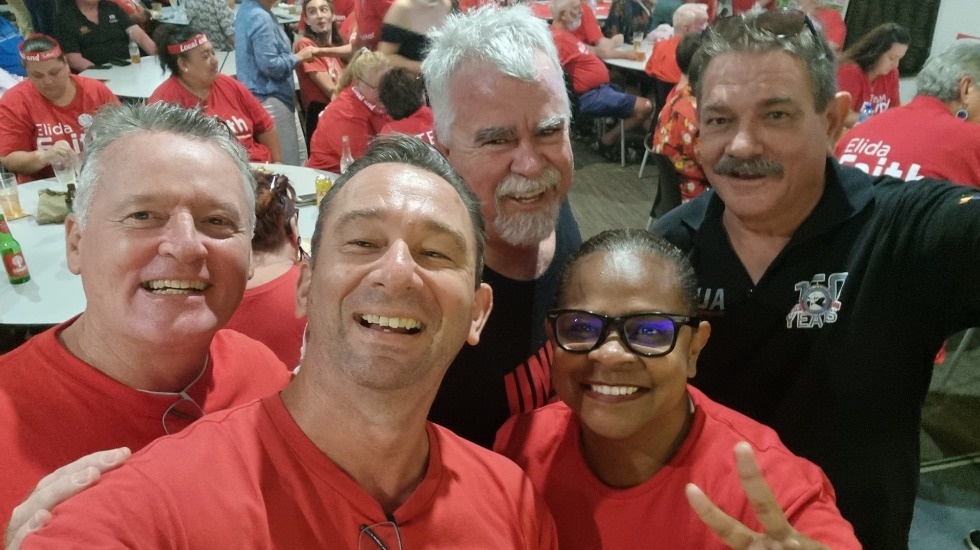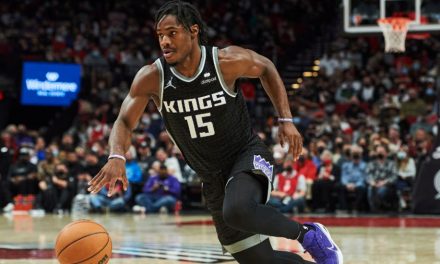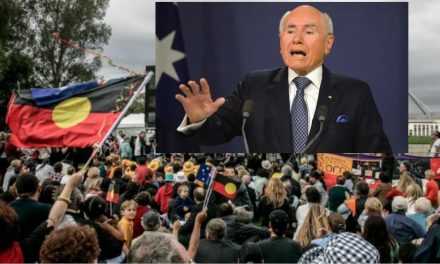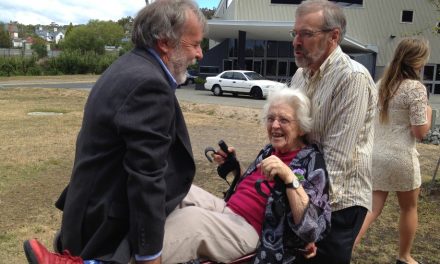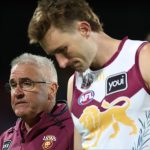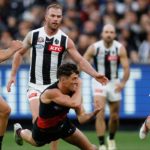Queensland Labor MPs Michael Healy, Craig Crawford, Cynthia Lui and union reps Heath Mitchell and ‘Gudge’ in Cairns.
After the shock defeat of Labor in 2019, I joked to a friend that at the next election, I would go to Queensland, the state that had delivered us the Morrison Government. I would knock on doors and get chased by redneck dogs. I didn’t care. Simply voting or campaigning in Wills – the most left-wing electorate in Australia according to the ABC’s Compass – wasn’t going to be enough.
In April, I went to an Electrical Trades Union (ETU) conference where issues affecting their members and the communities in which they live were thrashed out: strategies for a post-carbon economy, renewables, workers’ rights – to name a few.
The leader of the Queensland branch, Peter Ong, rose to speak about migrant workers who come to Australia on visas that effectively make them second class workers. We need laws, he said, so these people are paid the same, have the same rights as Australians, and do not have the fear of deportation if they speak up or take a stand.
The fact that a white, middle-aged bloke from a trade union (and I emphasise “trade” here because this union is notoriously protective of its status) from Queensland had given the most passionate speech I had heard on this issue, did not fail to make an impression.
At the same time, I met officials from the national office, fiercely progressive people, also Queenslanders, and this compelled me to reassess my attitude to a place I considered an alien world, one I couldn’t understand and had little desire to do so.
I mean, it’s understandable. Queensland has form.
Bjelke Petersen and Hanson, for starters. The sins of the former have made up entire books, chief among them his war on electrical workers who went on strike for job security in the 1980s. It remains one of the most painful industrial disputes in Australia’s labour history.
As for Hanson, who can forget her maiden speech to Parliament, her attacks on multiculturalism? For me, a daughter of migrants, a “wog” when it was a dirty word, it was personal. Through the Victorian Trades Hall Council, I was employed to organise a rally where 35,000 people came to protest against her.
So when the election was called, my friend Emily and I decided we would take leave from work and go somewhere we could make a difference. The ETU, which was campaigning in four seats in Queensland, told us that Cairns (where Elida Faith was running for the ALP in the seat of Leichardt) was where help was most needed.
I packed my suitcase with clothes for a Melbourne summer (when all I really needed was a sarong), a stove top cafettiere, and the hope that we could make a difference and help the election of a Labor government.
The pre-poll booths were the first sign I had come to another world. I had never seen so much respect for One Nation. People were seeking out their “How to Vote” cards, greeting the candidate like a long-lost friend. Some were Asian. I was aghast.
On election day, I was assigned to a booth where the One Nation volunteer was a woman with South Asian heritage. I couldn’t help myself. I asked her how she reconciled her support of this party with Hanson’s racism. She stared at me, seemingly appalled.
“What do you mean?” She asked. “I agree with lots of her policies.” “Including the one about people like you not belonging in Australia?” She shook her head at me in disgust and walked away.
The Greens volunteer, an earnest looking woman, saw the exchange.
“I grew up in a country town and Hanson visited once,” she said. “All the community leaders lined up to meet her. She shook everyone’s hand except for the members of an Aboriginal family who were there. I never forgot it.”
At dinner on Wednesday night with some ETU guys and a former CFMEU organiser, I talked about this, and about the Asian women who were hanging around One Nation people. “I think you’ll find that they’re the wives of the old blokes who are on the booths,” one said. The idea depressed me even more.
They agreed with me. They have no time for One Nation, but their supporters are in their community. So they work to bring around people who have a starting position so vastly different from ours.
PLEASE HELP US CONTINUE TO THRIVE BY BECOMING AN OFFICIAL FOOTYOLOGY PATRON. JUST CLICK THIS LINK.
“We have to find different ways to communicate and educate. It’s up to all of us that have strong left values to do that,” Robert said. I couldn’t help but think that the “all of us” was a pointed reference to me. And fair enough.
It’s fine for me to boast my progressive credentials from the smug inner-north of Melbourne where a difference of opinion might be about what constitutes a socialist economy (we don’t need the state to run florists, but do need them to run hospitals, electricity, water).
My respect for them grows.
At the campaign headquarters, Caroline, the campaign director, a dynamic woman with a sharp sense of humour and spades of compassion, talked to me about the logistics of getting to the booths on the islands while I looked at the map of the northern most tip of Australia. Badu, Bamaga, Waiben, Murray Group of islands. Places I didn’t know existed. In my own country.
The AEC said they couldn’t staff a booth in Kowanyama, a place on the west coast of the electorate. The people there would have to travel four hours to vote, an eight-hour round trip. How can this be? Caroline worked the phones over a couple of days and a flurry of media interviews by high profile Labor politicians turned it around. Even the democratic right to vote has to be fought for here.
On the polling booths, I saw poverty, disadvantage. They wanted to know about the “vaccine mandates” and what Labor is going to do about it. Emily talks through this with one of them, explains there is no mandate, manages to get him talking about other priorities he has. She is enthusiastic, persuasive. She would persuade me.
“If we put the vaccine issue to one side who would you vote for?” He shrugs. “Labor, I guess.” He takes the “How to Vote” card.
On election day, an anglo-Australian woman in her fifties approached with trepidation. She told me it was the first time she was voting. I asked why and she explained she had never bothered to register. She had no idea what to do and was is overwhelmed. She was in desperate need of dental work. Adam Bandt was right to call this out. It’s a disgrace. I told her what Labor’s pledges were.
“I agree with all of that, but I don’t like Albanese much,” she said. “Yeah, I get that,” I replied, “but you don’t have to marry him. I don’t like some politicians either, but you have to choose someone who is going to do something to help you.” She nodded and walked into the polling booth and I hoped that she would fill in the ballot paper correctly.
Leichardt was retained by the Liberals. There was a swing to Labor but it wasn’t enough. Maybe I convinced ten people not to vote for Morrison over five days in the sweltering heat. More than six thousand people voted for One Nation and their preferences went to the Liberals and delivered them the seat. I have no idea if I achieved anything at all.
None of the seats Labor hoped it might win went its way in Queensland, but a lot of people voted Greens and a lot of people voted for the Legalise Cannabis party. I didn’t even know they were running. I filled the Senate section from 1-6 and didn’t look further.
My son called me from Melbourne while I was at the election party. He was overjoyed, celebrating with friends in Brunswick. “I see the Cannabis party is doing well in Queensland,” he said. “My mates all voted for them.”
I was laughing when I got off the phone and approached some of the union guys at the bar to tell them. “Can you believe it?” They nodded. “Yeah. We voted for them too.”
In his speech, Australia’s new Prime Minister Anthony Albanese thanked the union movement. As he should. In the seat of Leichardt, there would have been no campaign without the unions.
The resources are thin on the ground, the party membership is aging. It’s testament to unions that they can still, despite everything that’s been thrown at them, provide a space for people to step forward, speak up, see the world in a different way and, dare I say it, develop a political consciousness.
They are the ones who attempt to pull people out of the rabbit holes of conspiracy theories, hidden cameras, chips in vaccines. They are the ones you can rely on to carry the load, do the work, because it has to be done. And they are the ones who can’t be forgotten now that Labor has won.
Many thanks to Michael Wright and Stuart Trail from the ETU for organising us and to Caroline McDonald for pretty much everything. And to my fellow traveller Emily Holm.

